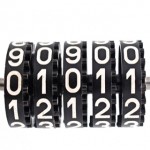Here is something that none of us probably think about. If the language you speak does not accommodate words for certain areas of human culture it may change the way you see the world. In one interesting example a language that had no number words made it hard for its speakers to count accurately.
Although number words and counting are a fixture of life in most cultures from the time we are old enough to play hide-and-go-seek, some languages have only a handful of number words. In a paper published in 2008, MIT cognitive neuroscientist Michael Frank and colleagues demonstrated that Pirahã, a language spoken by a small Amazonian community, has no number words at all. The research team simply asked Pirahã speakers to count different numbers of batteries, nuts and other common objects. Rather than having a word consistently used to describe “one X” a different word for “two Xs” and yet another word for “three Xs,” the Pirahã used hói to describe a small number of objects, hoí to describe a slightly larger number, and baágiso for an even larger number. Basically, these words mean “around one,” “some” and “many.”


No comments:
Post a Comment